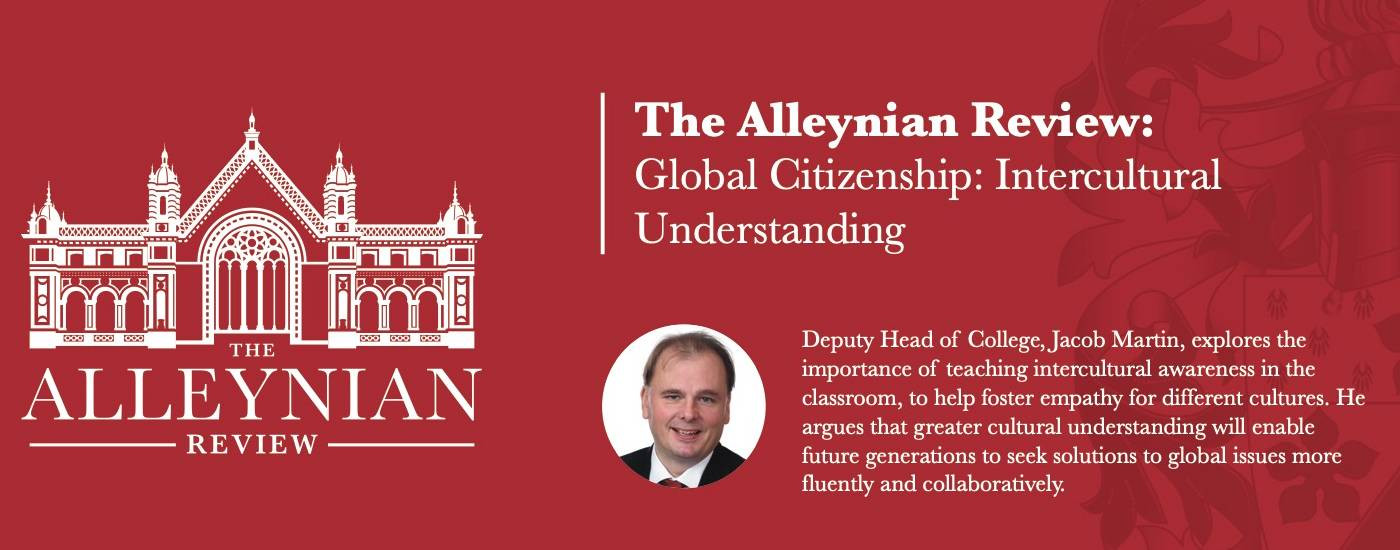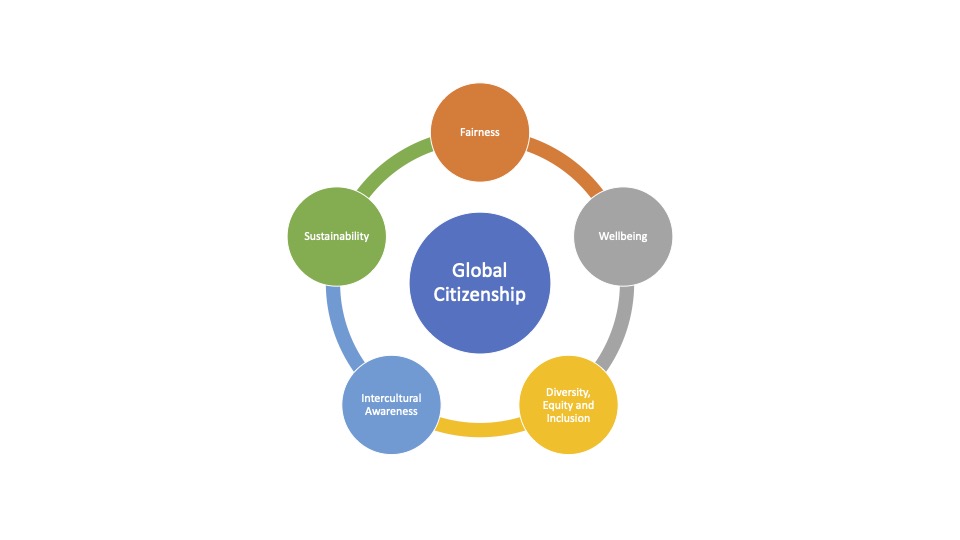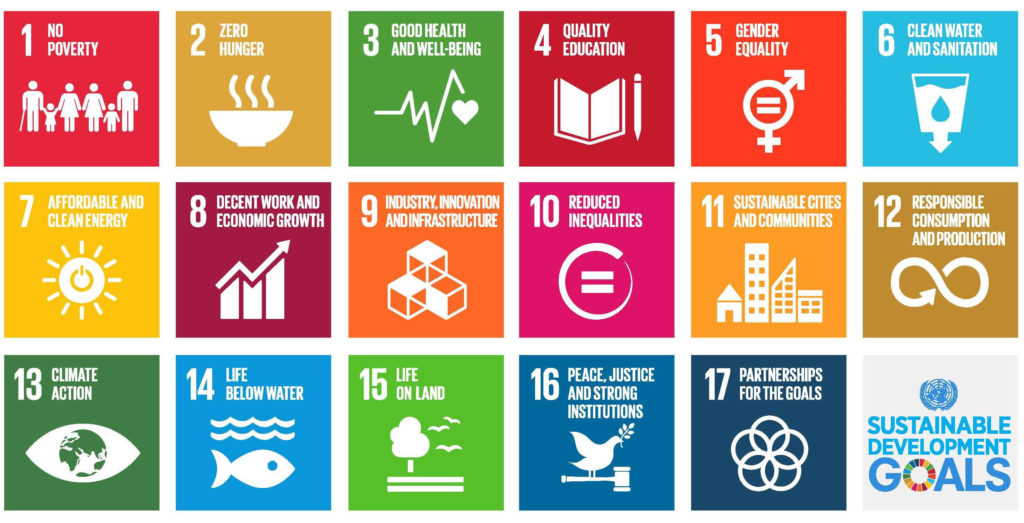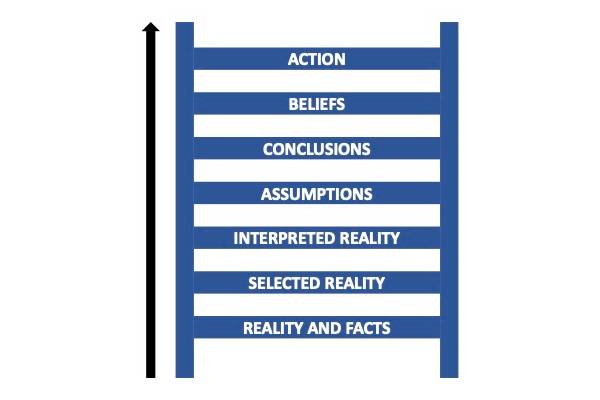Alleynian Review: Global Citizenship – Intercultural Understanding


Global Citizenship – Intercultural Understanding
In this article, I would like to explore one of the essential skills of a Global Citizen, the idea of intercultural awareness. Current educational and psychological thinking suggests that this affective skill can be explicitly taught and can be practiced and improved. It is also certainly true that some professionals are perceived as having lots of this type of understanding and some less so! This skill is becoming more important I would suggest as the world around us is changing rapidly.
The world our students are growing up into is a changing environment where ‘national’ ideas of culture and language even citizenship are altering. Borders are becoming more porous in most areas of the world, migration is more common with many seeking opportunities in other locations, people more commonly possess multiple citizenships. The internet has meant the distances between us have been reduced to ‘zero’ for much of the world’s population and so interacting with others from different cultures is far simpler.
“We are increasingly living next to, working alongside, sharing our leisure with, choosing our partners from people with different cultural backgrounds” (Walker 2010: 69).
The idea of nationalities is also more blurred, the idea that all Korean, Russian, Chinese, American or Spanish people are all the same culturally or even linguistically is not really the truth of the current world we live in. On our own island of Singapore the diversity of this ‘nation’ culturally is evident to us all. Successfully navigating the challenges of working, socialising, doing business and living amongst different cultures means we need a set of skills described as intercultural awareness.
Intercultural awareness and understanding mean reflecting on your own perspective as well as the perspectives of others, appreciating critically many beliefs, values, experiences, and knowledge of that culture. To illustrate this idea let us consider the fact that different cultures value the written and spoken word differently. In the Middle East, a verbal contract is often regarded as seriously binding whereas less so in the U.S or Europe. Even with cultures where the written word is king, there are differences. US contracts are drafted in agonising detail that cover every eventuality; in contrast, Japanese culture may be highly formal and professional but contracts are not seen as being quite so inflexible.
Professional meetings themselves can also vary culturally; your Danish meeting is likely to have an agenda that your Danish partners adhere too closely, and in the order, they are printed as often happens in Germany also. But in Brazil, Portugal, Spain, and Italy the agenda is a much looser guide to proceedings: all the items on it may be covered, but possibly not in the order in which they are written. Now all these statements are gross generalisations, but they help to illustrate the point that to navigate across these cultural borders our students need a set of skills and attitudes that will mean they are successful and happy as adults. It is part of the Live Worldwise theme we have this year.
We provide many opportunities to develop intercultural understanding in our programme, but we need to be deliberate about drawing out these skills with our students. Just last week our Year 11 students had a session facilitated by the United Nations High Commissioner for Refugees (UNHCR) regarding refugees in Afghanistan. Students were able to pose questions to develop their understanding of the underlying factors of this issue as well as develop empathy for others from a vastly different culture in a terrible situation. Exposing our students to different cultural sources, different books and resources whilst providing opportunities for language learning is the first step in developing these attributes.
A global intercultural understanding requires the ability to consider multiple perspectives. This is built through explorations of different cultures, as well as explicit practice applied to a wide range of contexts. Classrooms that are rich in discussion about varying perspectives with regards to environmental, political, economic, or social issues will actively develop students’ ability to consider varying points of view.
At Dulwich College (Singapore) we believe that the challenge for ourselves is very complex, schools need to educate for the future more than ever before. The world’s challenges as highlighted and articulated in the Sustainable Development Goals cannot be solved without us collaborating across nations and cultures and without us understanding and being aware of those cultural boundaries.


The Ladder of Inference describes the thinking process that we go through, usually without realising it, to get from a fact to a decision or action. Starting at the bottom of the ladder, we have reality and facts.
From there, we:
- Experience these selectively based on our beliefs and prior experience.
- Interpret what they mean.
- Apply our existing assumptions, sometimes without considering them.
- Draw conclusions based on the interpreted facts and our assumptions.
- Develop beliefs based on these conclusions.
- Take actions that seem "right" because they are based on what we believe.
This can create a vicious circle. Our beliefs have a big effect on how we select from reality and can lead us to ignore the true facts altogether. Soon we are literally jumping to conclusions – by missing facts and skipping steps in the reasoning process.
By using the Ladder of Inference, you can learn to get back to the facts and use your beliefs and experiences to positive effect, rather than allowing them to narrow your field of judgment. Following this step-by-step reasoning can lead you to better results, based on reality, so avoiding unnecessary mistakes and conflict.
Intercultural understandings are a challenging area of Global Citizenship, it is certainly a useful life skill for all of us to have who wish to engage with other cultures and be part of professional or personal communities that are culturally diverse. However, it can also look or feel like cultural stereotyping or bias or even as a driver for division if the students or teachers are not fully clear as to the purpose of the learning engagements and the skills being developed. The key, I believe, lies in the awareness of the skills themselves and using them deliberately. If we grow up in one culture, with a set of languages or one single language we will not be able to ever understand completely what it is like to be from a different cultural background but if we are aware of the skills which help all of us to communicate across cultural boundaries and use them deliberately then these skills create links and joint understandings and do not drive division or stereotyping. Accepting that each culture is
diverse and not determined by nationality, language, skin colour, gender or any other attribute is a key understanding. Groups within a culture, however, often share certain attributes which with the right intercultural understandings we can be more affective at creating human connections with and between.
Right now, division is rife and growing across the nations and cultures of the world. Driven by quick, snap judgements and media delivered deliberately to increase division without a care for the consequences. Schools have a responsibility to educate our students to be critically aware of these stereotyping pressures and accepting of other cultures if we are to build the world, we all want to live in.
Bibliography
Davey, I. (2011). Learners without borders: A curriculum for global citizenship. IB Position Paper, 3-6.
The Mind Tools Content Team by the Mind Tools Content Team, et al. "The Ladder of Inference: How to Avoid Jumping to Conclusions." Problem-Solving Training from MindTools.com, https://www.mindtools.com/pages/article/newTMC_91.htm.
Oxfam. 2006. Education for Global Citizenship: A Guide for Schools. http://www.oxfam.org.uk/education/gc/files/education_for_global_citizenship_a_guide_for_schools.pdf.
Suárez-Orozco Marcelo M., and Qin-Hilliard Desirée. "Ix." Globalization: Culture and Education in the New Millennium, Rawat Publications, Jawahar Nagar, Jaipur, 2016.
"The United Nations Sustainable Development Goals Project." UN Sustainable Development Goals Project, https://www.unsdgproject.com/.
WALKER, GEORGE. Challenges from a New World, JOHN CATT EDUCATIONAL LTD, S.l., 2020, pp. 69–69.
Williams, D. (2017, February 22). TranslateMedia. 2. https://www.translatemedia.com/translation-blog/different-cultures-value-spoken-written-word/





